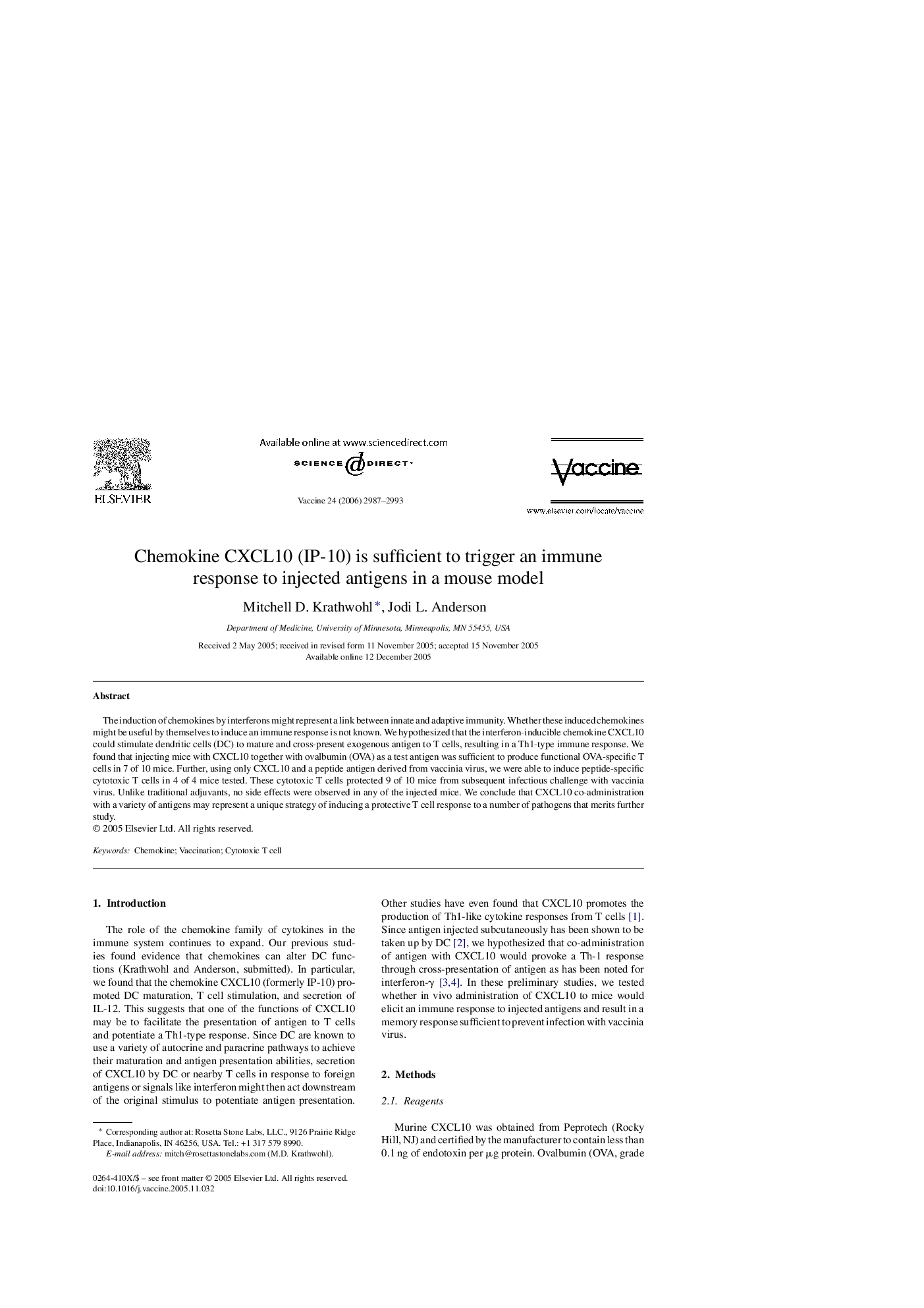| Article ID | Journal | Published Year | Pages | File Type |
|---|---|---|---|---|
| 2410425 | Vaccine | 2006 | 7 Pages |
The induction of chemokines by interferons might represent a link between innate and adaptive immunity. Whether these induced chemokines might be useful by themselves to induce an immune response is not known. We hypothesized that the interferon-inducible chemokine CXCL10 could stimulate dendritic cells (DC) to mature and cross-present exogenous antigen to T cells, resulting in a Th1-type immune response. We found that injecting mice with CXCL10 together with ovalbumin (OVA) as a test antigen was sufficient to produce functional OVA-specific T cells in 7 of 10 mice. Further, using only CXCL10 and a peptide antigen derived from vaccinia virus, we were able to induce peptide-specific cytotoxic T cells in 4 of 4 mice tested. These cytotoxic T cells protected 9 of 10 mice from subsequent infectious challenge with vaccinia virus. Unlike traditional adjuvants, no side effects were observed in any of the injected mice. We conclude that CXCL10 co-administration with a variety of antigens may represent a unique strategy of inducing a protective T cell response to a number of pathogens that merits further study.
